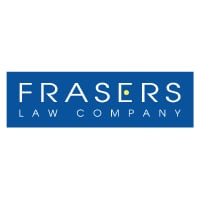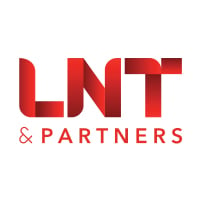
Legal director | British University Vietnam



Nguyen Kim Dung
Legal director | British University Vietnam
What are the most significant cases, projects, or transactions that you and your legal team have recently been involved in?
Over the past year, our university’s legal team has implemented and completed two significant projects for our University, in the context of the local government system transitioning from a three-tier to a two-tier model, along with the introduction of a series of new legal regulations in the education sector, particularly concerning autonomy and accountability in educational activities.
Due to the University’s organisational structure, the legal team is not a large department, therefore, each member must independently equip themselves and continuously update their legal knowledge across all aspects related to providing educational services. These areas include, but are not limited to, investment law, taxation, capital increases, branch openings, as well as contract matters and internal governance.
The first project was a comprehensive “Health Check” of the univeristy’s operations to ensure that all activities fully comply with current regulations. This process involved reviewing all internal procedures, regulations, and policies, comparing them with recent legal changes; and proposing adjustments and supplements to ensure legality, efficiency, and consistency in operations.
The second project involved increasing investment capital to continue developing infrastructure according to the investor’s plan. This project required the legal team to carry out a complex series of tasks, including:
Completing procedures for registering capital increases and changes to the business license; reviewing, evaluating, and adjusting contracts related to infrastructure construction, including contracts with domestic contractors and agreements with suppliers of equipment and materials; monitoring and supervising contractual obligations to ensure compliance with timelines, quality standards, and commercial commitments;
The implementation of these two projects posed numerous challenges for the legal team at every stage — from keeping up to date with new legal regulations, managing contractual risks, and coordinating stakeholders, to addressing arising issues in order to adapt to changes in the law and shifts in the two-tier governmental structure. Nevertheless, the experience and capabilities accumulated from previous projects, together with the team’s dedicated efforts, enabled these two projects to succeed while ensuring the University operates efficiently, remains legally compliant, and is well-prepared for subsequent development steps.
How do you approach managing legal aspects during periods of instability or crisis to ensure the organisation’s resilience?
During periods of instability or when legal regulations change, I consistently adopt a proactive and systematic approach to comprehensively manage legal matters, with the goal of ensuring compliance, minimising risk, and strengthening the organisation’s adaptability. By anticipating legal changes, developing flexible processes, and maintaining effective communication channels with both internal and external stakeholders, the organisation can not only maintain compliance but also respond quickly and strategically, turning potential risks into opportunities for improvement.
General counsel often speak of the need to be strategic to reach the pinnacle of the profession. What does being strategic mean to you?
For me, “strategy” in the legal profession is not simply about reacting to issues as they arise, but about proactively anticipating, guiding, and preparing so that the organisation can operate sustainably in the long term.
The role of a General Counsel (GC) is to ensure that legal considerations are fully integrated into the organisation’s annual business plans as well as its five-year and ten-year development strategies. This involves advising on the potential, risks, and effectiveness of legal, commercial, and financial factors, as well as their interdependencies, and providing solutions that are not only legally compliant but also create added value for the organisation.
In practice, “strategy” means the ability to: Anticipate and stay ahead of changes in the legal environment, market, and technology; build systems, processes, and policies that are flexible and adaptable while maintaining compliance standards; connect and collaborate effectively with other departments so that legal solutions actively support business strategy.
To me, a strategic General Counsel is not merely a “compliance gatekeeper” but a true partner to the leadership team in shaping and steering the organisation’s growth path.
Have you had any experiences during your career as a lawyer that stand out as particularly unique or interesting?
I would like to share a story that stands out as an unforgettable experience in my career as a lawyer. During my work, I observed that the operations of private educational institutions required clearer legal frameworks regarding legal status and sources of private investment. I proposed this idea, and it was initially included in the draft Education Law – I was fortunate to be invited as a member of the law drafting committee.
However, after the general assessments were conducted, the provision I proposed was removed from the draft. Unexpectedly, several private investors, including a nearly 90-year-old educator who also owned a private K-12 school, strongly opposed this removal. He stated that if the provision I suggested were omitted, he would have to sell his school and even considered suicide, as without this provision, his dedication and efforts to education would not be recognised transparently and legally. Remarkably, he had no idea that I was the author of the provision.
Thanks to the strong feedback from these private investors, including the 90-year-old educator, the drafting committee re-evaluated the policy impact. As a result, the provision I proposed was approved by the government and ratified by the National Assembly into law.
For me, this was an especially memorable experience because it demonstrated the real impact of law on people’s lives, as well as the importance of a lawyer not only drafting legal texts but also understanding and protecting the legitimate interests of stakeholders.
What do you think are the most important attributes for a modern in-house counsel to possess?
A modern in-house counsel should possess three key qualities. Firstly, a deep legal knowledge and the ability to apply it to business strategy: An in-house counsel is not only responsible for ensuring legal compliance but must also have a clear understanding of the company’s operations and strategic goals in order to provide legal solutions that genuinely support business objectives. Secondly, Effective and flexible legal communication skills: An in-house counsel should be able to convey complex legal matters clearly and understandably, without rigidity, while collaborating efficiently with internal departments and external partners. Thirdly, flexible application of the law and proactive risk anticipation: In a constantly changing legal and business environment, an in-house counsel must be able to anticipate potential risks, propose preventive measures, and adjust strategies accordingly to protect the organisation proactively.
In summary, a modern in-house counsel is not just a guardian of legal compliance but also a strategic partner, a bridge between law and business, and a leader in guiding the organisation to manage risks intelligently and flexibly.
Legal director | British University Vietnam